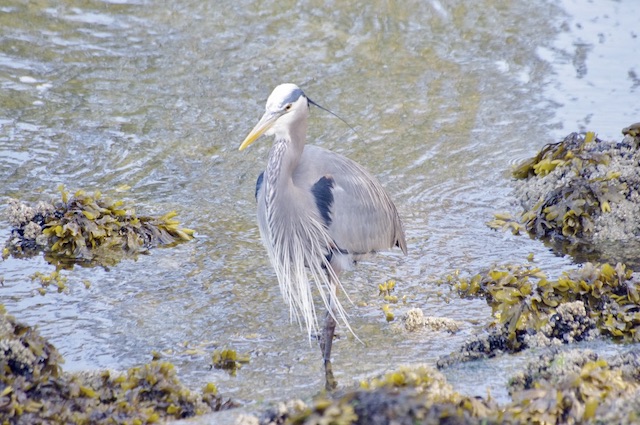
I took this shot a while back
I stroll along the river shore and wonder:
Is there anything the plastic human brain
cannot be made to think, believe, and hence to do?
Any atrocity, any outrage, any cruelty?
There are frogs peeping in the mud, and across the way
a heron perches, one foot raised as if in yoga pose.
The heron thinks nothing of us;
it accepts us as it accepts the rain.
It looks no differently upon our mad constructions
than it does upon the miracle of spring’s rebirth.
Behind me, human cranes, named after this heron’s kin
continue our industrial disease, unceasing.
I gaze across the urban crown, my home now,
and shake my head: Is this what we have come to?
Is More now all we can imagine?
If some alien, with our strange sense of sentience
were to scan our planet, what would they make of it?
Self-regenerating splendour
replaced by billions of hard, fragile monuments
to one deranged species’ failure to see
how to live and thrive in place,
our Great Forgetting.
Perhaps they would ask the whales
if they could explain it, and the whales would reply:
This is everything, and has always been —
There is no Why.
There are beaver lodges on the islands in this river,
and beavers’ ‘summer homes’ along its banks
inaccessible to nosy humans.
They invented dams when they first appeared,
bear sized, twelve million years ago,
dams that, unlike their human imitations,
increase local biodiversity.
Their dams begin a cycle that responds
to shifts in water levels, cycles that can range
from months to centuries, as each stage brings
new inhabitants, and then
the cycle starts anew.
You can tell the occupants’ age
by the quality of a beaver’s lodge — they learn
from experience, and from observation,
and build new lodges, usually, every year.
This one’s no student dorm.
The ones relinquished quickly wash away.
When we abandon ours
we name them after what they do
to once-untrammelled land they’re built upon:
We call them ruins.
+++++
Back home, I watch
The Fall of Civilizations,
an endless litany
of overcrowded masses
constantly at war —
How did we get this way?
Ground into slavery, fealty,
doing what we’re told:
Drive to work each day
to do a job we had to beg for,
so we have enough.
Breed more humans, all
to do the same. Teach them
there’s no other way to live.
This is our lot. To struggle,
to desolate a bit more of the earth,
indifferently, disconnected
from the harm our simple labours wreak.
The heron doesn’t mind.
To it, we are just outcasts,
scrambling to stay alive
in our peculiar way.
Only the plastic human mind,
assailed by its incessant fears,
its endless need
to believe this all makes sense,
could be convinced
this is a good life,
or that we have a choice.
The whale sings its plaintive, timeless song.
The beaver slaps its tail, warding off
something that doesn’t belong there.
The heron flaps its wings, and flies toward
its nighttime roost.
In the falling dark, the crows gather
to say what must be said.
The humans wind our way home,
lost, scared, bewildered,
conditioned to be grateful,
to relish our distractions and small joys,
to look forward to more and better things.
After all,
we could be starving or at war;
we could be dying of disease, or on the streets;
we could be in a prison
of someone else’s making,
And who’s to say
this isn’t how we’re meant to live?





Humanity is a sad disease on this beautiful planet. The only comfort I can give is to tell myself, everything dies sooner or later.
Thanks for your poem of being on Earth as it is.
I really felt this one. Thank you, Dave. I appreciate you putting this out there.